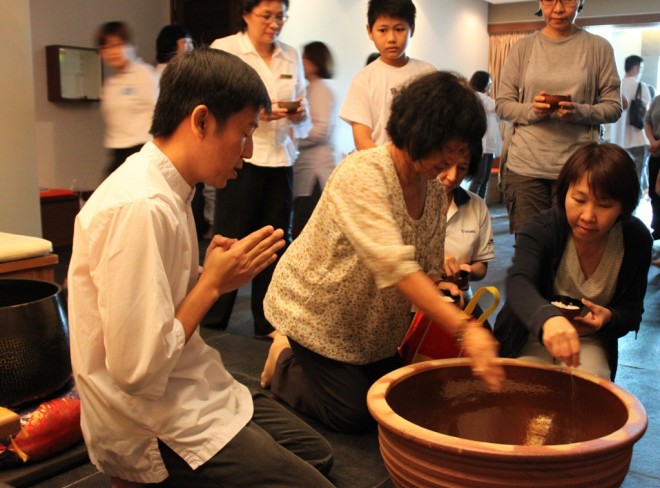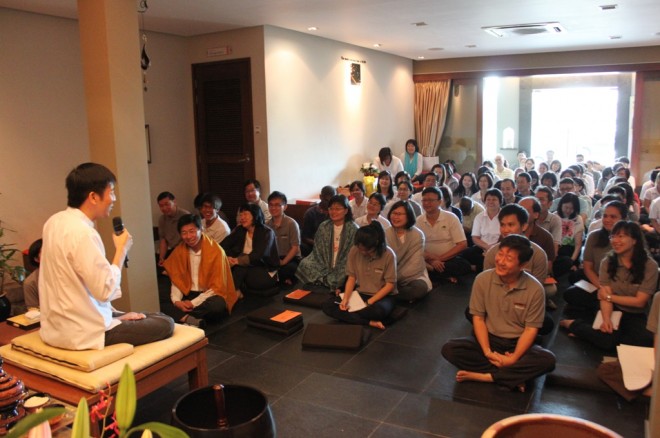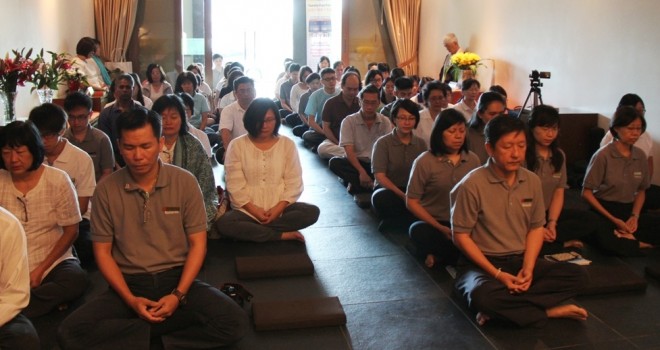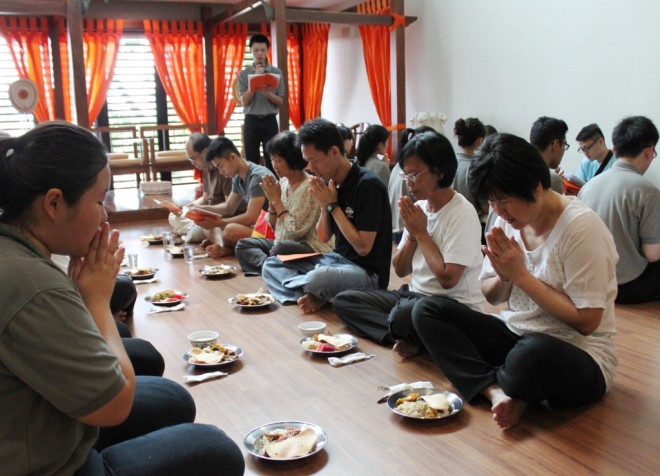Commentary on the ‘Simile of thoroughbreds’
Commentary on the ‘Simile of thoroughbreds’
Report by Thong Fee Shen | Photographs by Gan Jia Cheng
On Sunday 6 July, Bro. Tan gave an uplifting Dhamma teaching quoting a discourse in the Anguttara Nikāya, whereby the Buddha described 4 kinds of good practitioners using the ‘simile of thoroughbreds’. They are (1) one who upon hearing about the pain or death of a man or woman, realises that the same could happen to him, and thus stirred to cultivate; (2) one who sees before his eyes a man or woman in pain or dead, and feels the urgency to cultivate; (3) one whose family members, closed friends or loved ones are in pain or dead, and he feels the urgency to cultivate; and (4) one who experiences pain himself, and feels the urgency to cultivate.
Awareness about the reality of life (pain and death) rarely occurs in the ‘untrained’ individual, said Bro Tan. The seed of awareness may be planted after listening to Dhamma, but we still have to nurture that seed for it to grow.
There are 3 things every practitioner should cultivate in his practice – higher morality, nobler mental states, and superior wisdom. Furthermore, a practitioner should also develop 3 factors similar to that of a treasured thoroughbred, namely (1) beauty of conduct and character; (2) strength of resolve and courage; and (3) the stamina to proceed with resilience.

Devotees making 'rice offerings' after the Service, which will later be cooked and served to the homeless in Kuala Lumpur.
It was a spiritually nurturing morning as devotees listened attentively to Bro. Tan’s inspiring teachings. After the talk, devotees joyfully practised “working meditation” by cleaning and tidying up Nalanda Centre before the communal lunch. Sadhu anumodana!




